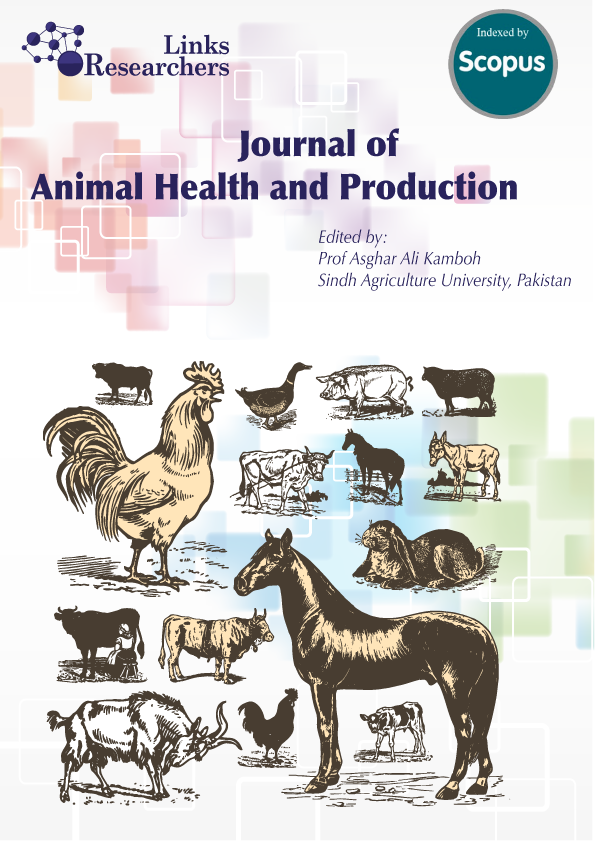Administration of Bee Pollen, Nigella sativa Oil, and their Combination as a Strategy for Improving Growth Performance, Immunity, and Health Status of Newborn Friesian Calves During the Suckling Period
Administration of Bee Pollen, Nigella sativa Oil, and their Combination as a Strategy for Improving Growth Performance, Immunity, and Health Status of Newborn Friesian Calves During the Suckling Period
H.A. El-Nagar1, A.M. El-Hais2, M.S. Mandouh2, W.M. Wafa1*, A.H. ABD El-Aziz, K.A. Attia4
ABSTRACT
This study aimed to evaluate the effect of dietary supplementation of bee pollen (BP), black seed oil (BS, Nigella sativa), or their combination on growth performance, immunity, and health status of females of newborn Friesian calves. A total of 20 newborn calves (37.51±0.92 kg LBW) were divided into 4 groups. During the suckling period, animals in the 1st group were fed a starter without any addition (G1, control). Animals in G2, G3, and G4 were fed the same starter supplemented with BP (10g/kg), BS oil (10g/kg), or their combination (5g Bp+5g BS oil), respectively. Results showed that all immunoglobulin types (IgG, IgM, and IgA), total protein, albumin, globulin, glucose, total lipids, total cholesterol, and total antioxidant capacity in blood serum, and RBCs, WBCs, Hb, and PCV increased (P<0.05) in treated than in the control calves, being the highest with the combination treatment. Urea-N and creatinine concentrations, and AST and ALT activities decreased (P<0.05) in treated compared with the control calves, with the lowest values for the combination treatment. The treated calves were heavier with higher weight gains than the control one, being the highest with the combination treatment. In conclusion, addition of a combination of 5g bee pollen and 5g black seeds oil/kg in the starter during the sucking period improves live body weight, weight gain, immunity, kidney and liver functions, and antioxidant status of female newborn Friesian calves. This administration is considered a good strategy for raising dairy calves in dairy farms.
To share on other social networks, click on any share button. What are these?





